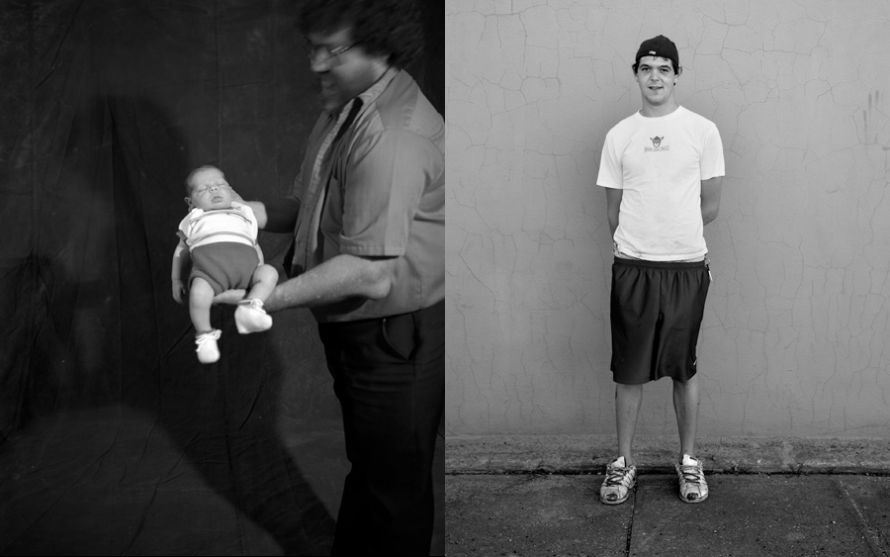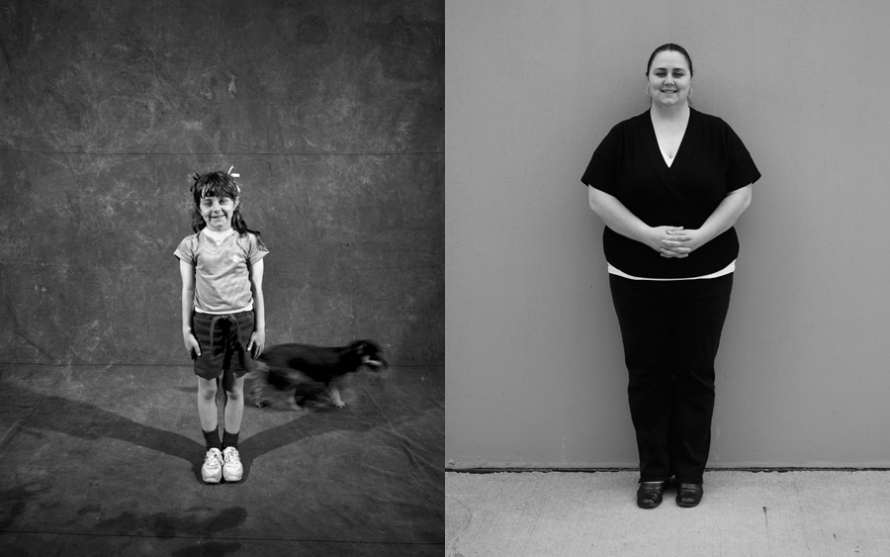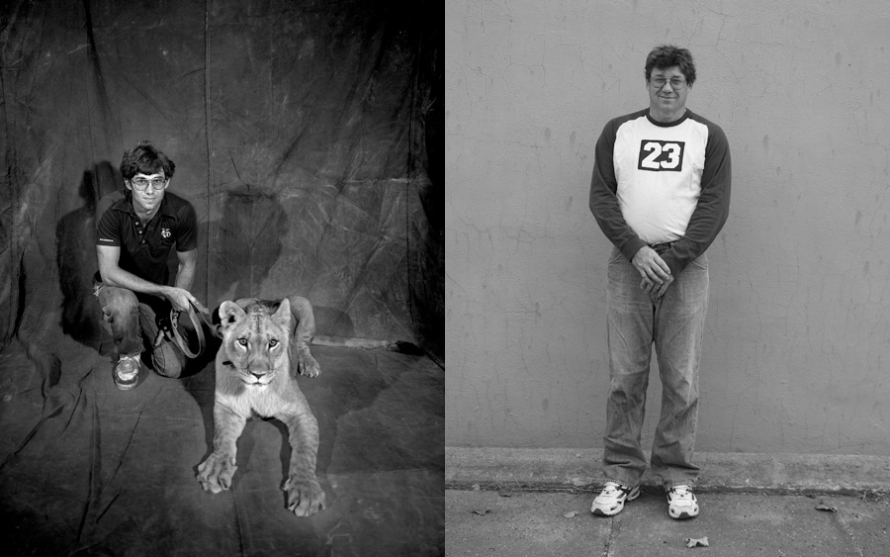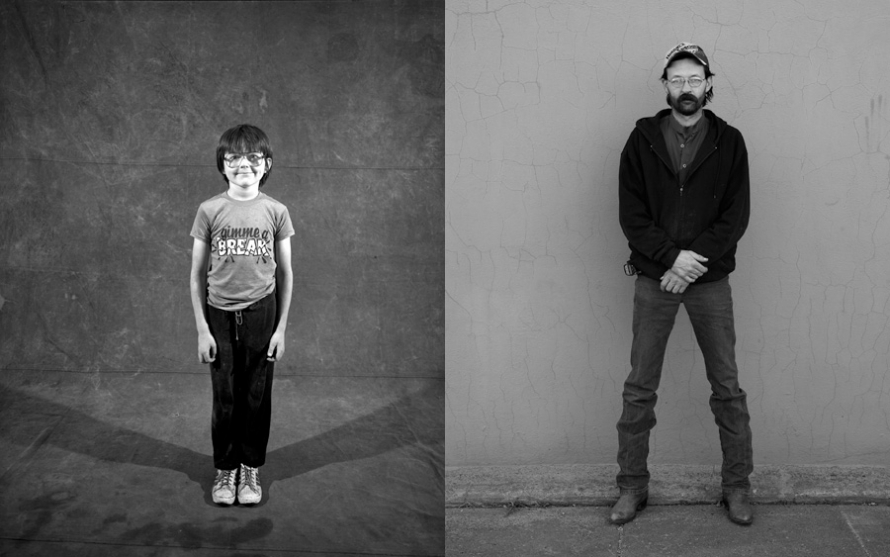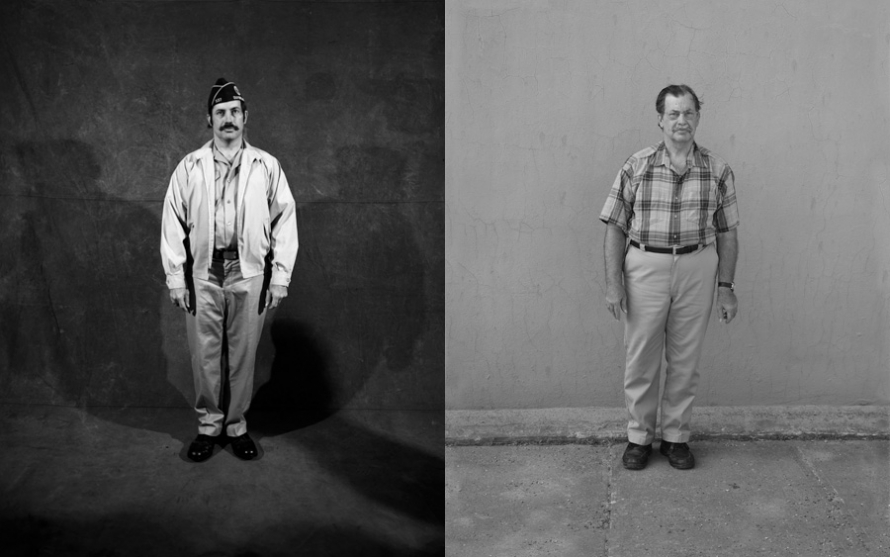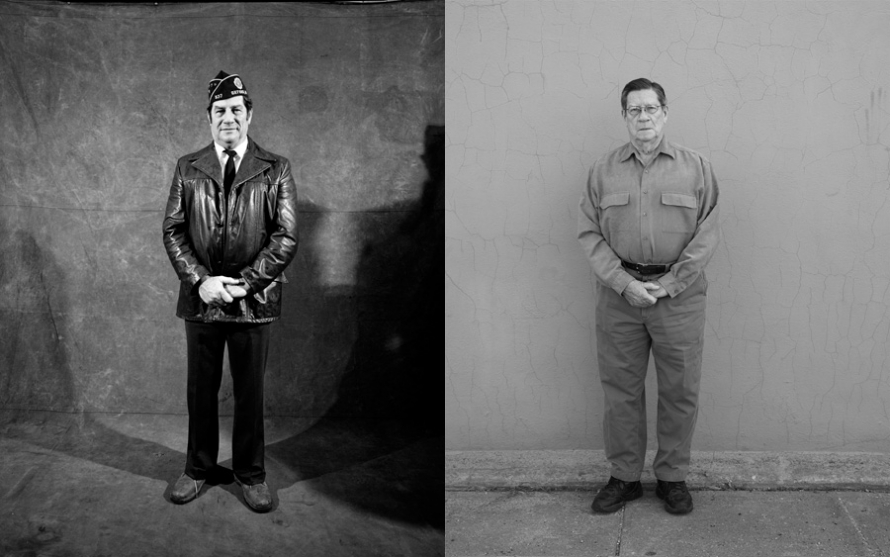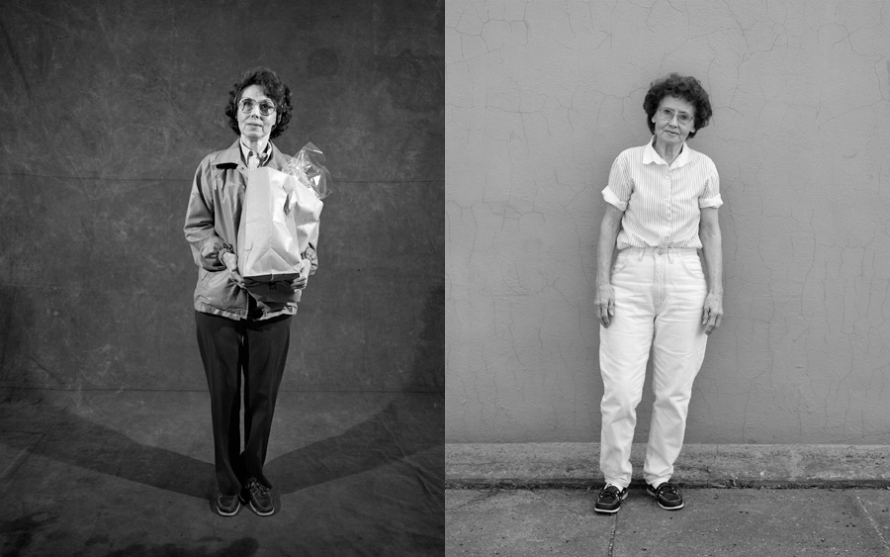In the spring and summer of 1984, photographer Peter Feldstein announced that he wanted to take free portraits of everyone in Oxford, Iowa (pop. 673). By the end of the summer, he’d photographed 670 Oxford residents. Twenty-one years later, Feldstein went back, and this time he brought along writer Stephen G. Bloom to document people’s stories. The Oxford Project (Welcome Books) is the remarkable portrait of a small town, as Bloom notes below, “virtually untouched by both the vitality and vulgarity of urban America.”
All images copyright © the authors, courtesy Welcome Books, all rights reserved.
Peter, how did the project begin? Why did you choose Oxford?
Feldstein: I’ve lived in Oxford since 1978. One May morning in 1984, I walked up and down every street in Oxford, slipping flyers under some doors and taping flyers to other doors, inviting residents to have their photographs taken. I taped the sign to a storefront window on Oxford’s main street. Inside, I covered the windows with aluminum foil and brown-wrapping paper, hung a construction tarp as a backdrop, and turned on two quartz lights.
That first day no one showed up. Over the next several days, my only takers were kids on their way home from school. A retired couple stopped by, and I snapped their pictures. Several more people poked their heads in the storefront. On Memorial Day, Al Scheetz, on his way to march in the American Legion Post parade, stopped by and I took his photograph. Later, Al brought with him four dozen Legionnaires and their families. The project took off from there. By late summer, I had photographed a 670 Oxford residents.
Stephen, how did you get involved?
Bloom: Until a couple of years ago, Peter taught at the University of Iowa, where I still teach. After taking several photographs in 2005 of the same people whose images he captured in 1984, Peter suggested that I ask Oxford people to tell their stories, to reveal how their lives had changed in the intervening years.
Do any of the subjects particularly stand out in your minds?
Bloom: Actually, every one of the 100 people we interviewed had a compelling story to tell. Each was different, but each was dramatic and heartfelt.
What surprised you during the photo and interview sessions?
Bloom: We learned Oxford residents’ views on God, the hereafter, the war in Iraq, the food they like, their hobbies, idols, daily routines. We learned of individual acts of heroism—some great, some small. We witnessed awkward children mature into secure, confident parents.
Feldstein: Most people are shorter, taller or heavier today than they were when I first photographed them. Some are now stooped. Several cannot walk or breathe unassisted. At least four farmers have lost fingers, hands, or limbs.
Visually, almost everyone posed in an identical manner despite the more than two-decade interval. Mary Ann Carter, co-owner of the local Ford dealership, still tilted her head to the left, her hands cupped neatly at her side. Retired carpenter Jim Jiras still wore a seed cap, and still had two pens in his shirt pocket. Brothers Tim and Mike Hennes stood exactly the same as they had 21 years earlier.
What did you learn from the Oxford project about the fate of small towns in America?
Bloom: Everyone wants to talk and few people want to listen. If you give people the opportunity, and you’re sincere about listening carefully, most people will unburden themselves by telling you what’s on their minds. In a sense, we acted as confessors. My interest was to give voice to people whose voices are usually ignored.
Much of small-town America has disappeared, and what already hasn’t, will in the next decade or so. These self-contained, insular places in America’s “fly-over country” are virtually untouched by both the vitality and vulgarity of urban America. The Oxford Project allows us to peak into a world soon to disappear.
What are you working on now?
Bloom: I’ve just finished a book, a nonfiction global mystery story about pearls, entitled Tears of Mermaids, which will be published next fall by St. Martin’s Press.
Feldstein: I’m working on a photographic commission for a large public building.
